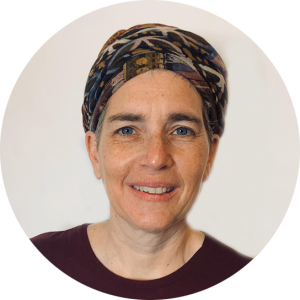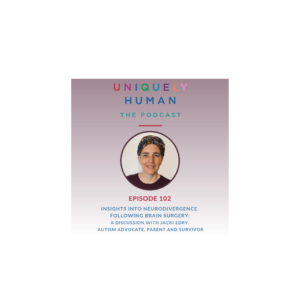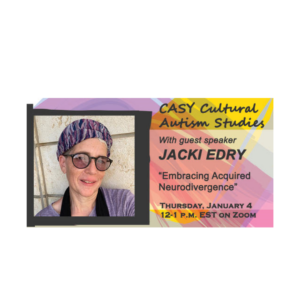I hadn’t, until recently, when I was fortunate to happen upon Dr. Rae Stout’s Facebook group “Auditory Processing Disorder (APD / CAPD) & Auditory Sensitivities Support.”
According to her website, Dr. Rae is the pioneer in applications of low-gain programming of digital hearing devices in the treatment of auditory processing, sensitivity, and tolerance difficulties.
When I found her support group, I had been searching for a solution for my now twenty-five-year-old autistic son’s severe auditory processing difficulties for many years. From the time he was young, it was obvious that he could not efficiently filter and process auditory stimuli. Despite this, his hearing tests always came back “in the normal range.” It took us a while to figure out that “in the normal range” doesn’t necessarily mean good hearing and that a CAPD (central auditory processing disorder) assessment is required to diagnose auditory processing issues.
Individuals living with a CAPD may have difficulty processing auditory stimuli, understanding words or sentences, or following long auditory instructions. They might appear to “drift off” in the middle of conversations or have difficulty remaining attentive in noisy environments (like classrooms). They may also suffer from sound sensitivity (which can make noisy environments intolerable).
Many people with APDs are diagnosed (and sometimes misdiagnosed) with ADHD. Two of my children were mistakenly diagnosed with ADHD and dyslexia. Their accurate diagnoses are Auditory Processing Disorder and Irlen syndrome. Irlen syndrome affects visual perception and processing and is corrected with colored spectral filters.
We have been trying to find solutions for our son’s auditory difficulties since he was young. He was always accompanied by a 1:1 assistant during school to help him understand his lessons. He underwent a few rounds of Auditory Integration Training (Berard method) and had years of speech therapy. He also used different forms of assistive technology, such as the live listen feature on his iPhone, to help him understand speech in noisy environments. Acoustic classrooms helped reduce classroom noise, particularly when combined with Nuance Hearing’s technology (which provides a solution similar to an FM system).
These things helped to improve his functional hearing somewhat, but, unlike Irlen spectral filters, they did not solve the problem. He still couldn’t decipher sound clearly enough to enable him to sit with a group of people and follow a conversation. To date, his verbal abilities are extremely limited, likely due to his hearing challenges, which he finds extremely frustrating.
As a parent, I have found it immensely frustrating and saddening to observe him trying to cope with his challenges and to be unable to assist him. And despite our ongoing efforts, it felt as if none of the accommodations and technologies we had tried enabled him to follow conversations and engage in the social interactions he clearly longed for.
A typical social scenario looked like this: a group of friends or family would sit around a table and engage in conversation. He would join in and then try to observe everyone’s body language and likely attempt to read their lips. After a few minutes, he would begin daydreaming. At times, he would interrupt the conversation with a completely irrelevant statement when he tried to re-engage. When he did this, it would cause everyone to stop conversing and look at him strangely. And then, because his comment was off-topic, they would simply resume their conversation as if he hadn’t said anything. This situation was painful for him to experience and painful for me to observe.
After following her posts for a while, I reached out to Dr. Rae, who kindly offered to help us. Since we reside in Israel, she suggested we try to find a local audiologist because hearing aids sometimes require technical assistance. She would provide us with guidance if necessary.
Much to my surprise, it took me a few months to find a specialist who had heard about low-gain hearing aids (LGHAs)! I realize that this is a relatively new method of programming hearing aids. Many professionals are unsure how to treat APDs because people with them often have “normal” hearing tests, and APDs are not easily “measurable.” They stem from neurological processing issues, not hearing loss. Therefore, many audiologists and ENTs are unfamiliar with the options and technologies available to improve them.
Fortunately, our search led us to a wonderful audiologist in Jerusalem. And I cannot describe to you the immense relief and pleasure I felt when I saw a huge smile break across my son’s face moments after she placed the hearing aids in his ears! When she asked him how they felt, he told them they were “great” and that he “hears well”!
About a month has gone by, and we have already seen positive changes. The first thing my son does when he wakes up in the morning, is to put in his hearing aids. He tells us they help him understand what people are saying and make him feel nice- which is exactly what we were praying for! I have noticed a number of changes as well: he responds quicker and more accurately to things I say to him and is speaking more.
I imagine and hope that these are the beginnings of what will be ongoing change and that, G-d willing, over time, his hearing aids will enable him to continue improving his overall communication skills. They are already having a significant impact because they help him feel more comfortable, connected, and energetic throughout the day, which is a blessing.
I feel obligated to address the fact that I have found that there is a significant lack of knowledge and understanding of neurologically based sensory processing issues such as APDs, Irlen syndrome, dyslexia, and more amongst professionals.
The difficulty I described finding professionals to help us with our son’s APD was reminiscent of the lack of familiarity we encountered when we approached ophthalmologists, optometrists, neurologists, educators, and didactic assessors regarding treatment options for our children’s visual processing issues.
Visual and auditory processing are perhaps our two most dominant senses, and they significantly affect our sense of well-being and our ability to learn, speak, thrive, and function. They are not easily “measurable” as they stem from neurological processing issues rather than “mechanically based” losses of vision or hearing.
It is, therefore, critical for all medical professionals, therapists, educators, and didactic assessors to do their best to learn and understand more about the impact sensory processing issues have on every aspect of daily life and emotional well-being. They must become familiar with and recommend the solutions and accommodations available to enable individuals living with these processing issues to feel comfortable and to learn, grow, and achieve the goals they set for themselves with as little sensory irregularities or interference as possible!
Professionals- you have the ability and responsibility to educate parents and individuals in need regarding techniques and devices that can help to improve their quality of life. I strongly urge you to do everything you can to acquire knowledge about the latest technologies and developments in these areas and to help spread the word about them.
And, although it might require a bit of effort and out-of-the-box thinking, remember that you can make a significant difference in someone’s life. Please take it upon yourself to do so! It can mean the world to someone in need!
I wish you all clarity of thought and senses and, if needed, the ability to discover the tools to you need help you feel as calm, focused, and balanced as possible!
-Jacki
*It’s important to note that LGHA’s are not helpful in every instance of APD. It depends on how the individual reacts to them. But, being that there is a trial period available, I believe there is absolutely nothing to lose by trying them out to see if they are beneficial!
**If you reside in Israel and are looking for an audiologist to assist you with an APD or an Irlen provider for help with visual processing issues or light sensitivity, please feel free to reach out. I will be happy to provide you with guidance.
#APD #AuditoryProcessingDisorder #SPD #SensoryProcessing #HearingAids #LGHA #autism #neurodiversity #IrlenSyndrome #Visual Processing #Neurodivergent





3 Responses
so important to know this to assist someone in need. thank you for sharing your knowledge with us.
Thank you, Maia; I’m so glad you found it helpful!
Fascinating. I will be looking into this. Thank you Jacki!